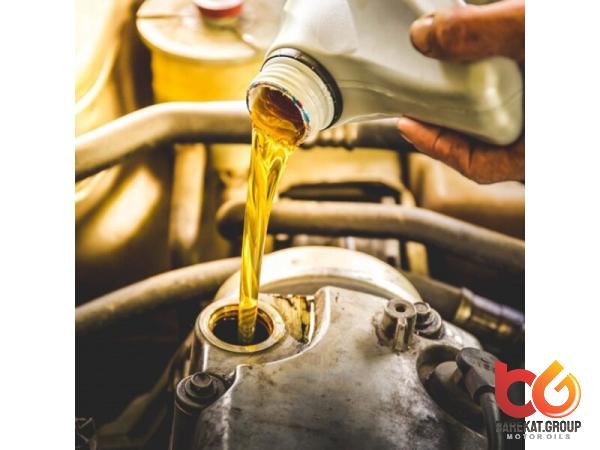A Comprehensive Guide to Different Types of Motor Oil Introduction: Motor oil is a vital component in ensuring the smooth and efficient operation of a vehicle’s engine. It lubricates internal parts, reduces friction, protects against wear and tear, and maintains engine performance. However, with so many different types of motor oils available in the market today, it can be overwhelming for vehicle owners to choose the right one. In this article, we will provide a comprehensive guide to the various kinds of motor oil, including their composition, viscosity ratings, and specific applications. 1. Conventional Oil: Conventional oil, also known as mineral oil, is the most basic and widely available type. It is derived from crude oil through a refining process and blended with various additives to enhance its performance. Conventional oil offers good lubrication and protects against engine wear, but it may break down at higher temperatures and require more frequent oil changes than synthetic oils. It is suitable for older vehicles with low to moderate mileage. 2. Synthetic Oil: Synthetic oil is created through a chemical process that produces a more consistent and high-quality lubricant compared to conventional oil. It offers superior performance and protection, especially in extreme temperatures and under heavy loads. Synthetic oil withstands thermal breakdown better, flows more easily at low temperatures, and provides increased engine cleanliness. It is recommended for new or high-performance vehicles, turbocharged engines, and those operating in severe driving conditions. 3. Synthetic Blend Oil: Synthetic blend oil, as the name suggests, is a combination of conventional and synthetic oils. It offers some of the benefits of synthetic oil at a lower cost. and efficiency.
Engine oil
 Synthetic blend oil provides improved resistance to oxidation and offers better protection against engine wear compared to conventional oil. It is particularly suitable for vehicles that require added protection but do not need the full performance benefits of synthetic oil. 4. High Mileage Oil: High mileage oil is specially formulated for vehicles with over 75,000 miles or those that have already experienced wear and tear. It contains additives that help reduce oil leaks, engine sludge, and reduce friction in older engines with worn seals and gaskets. High mileage oil provides better lubrication for aging engines and helps extend their longevity, maintaining performance as well as reducing oil burn-off. 5. Racing Oil: Racing oil is designed for high-performance race engines that operate under extreme conditions, such as high RPMs, high temperatures, and heavy loads. Racing oils have a higher viscosity to withstand the extra stress on engine parts and provide optimal engine protection. They also contain additives that prevent foaming, reduce friction, and improve power output. It is important to note that racing oil is not recommended for regular street driving due to its high viscosity and cost. 6. Diesel Oil: Diesel oil is specifically formulated for diesel engines, which operate at higher compression ratios and face different challenges compared to gasoline engines. Diesel oil has a higher viscosity and additional additives to combat soot, control oxidation, and prevent wear. It provides better protection for diesel engines, especially those towing heavy loads or operating in extreme conditions. 7. Eco-Friendly Oil: With increasing environmental concerns, eco-friendly or environmentally friendly oil options have emerged in recent years. These oils are often labeled as “green” or “bio-based” oils.
Synthetic blend oil provides improved resistance to oxidation and offers better protection against engine wear compared to conventional oil. It is particularly suitable for vehicles that require added protection but do not need the full performance benefits of synthetic oil. 4. High Mileage Oil: High mileage oil is specially formulated for vehicles with over 75,000 miles or those that have already experienced wear and tear. It contains additives that help reduce oil leaks, engine sludge, and reduce friction in older engines with worn seals and gaskets. High mileage oil provides better lubrication for aging engines and helps extend their longevity, maintaining performance as well as reducing oil burn-off. 5. Racing Oil: Racing oil is designed for high-performance race engines that operate under extreme conditions, such as high RPMs, high temperatures, and heavy loads. Racing oils have a higher viscosity to withstand the extra stress on engine parts and provide optimal engine protection. They also contain additives that prevent foaming, reduce friction, and improve power output. It is important to note that racing oil is not recommended for regular street driving due to its high viscosity and cost. 6. Diesel Oil: Diesel oil is specifically formulated for diesel engines, which operate at higher compression ratios and face different challenges compared to gasoline engines. Diesel oil has a higher viscosity and additional additives to combat soot, control oxidation, and prevent wear. It provides better protection for diesel engines, especially those towing heavy loads or operating in extreme conditions. 7. Eco-Friendly Oil: With increasing environmental concerns, eco-friendly or environmentally friendly oil options have emerged in recent years. These oils are often labeled as “green” or “bio-based” oils.
Specifications of Engine oil
 They are typically made from renewable resources, such as plant-based oils and synthetic esters. Eco-friendly oils offer comparable performance and protection to traditional motor oils while reducing carbon emissions and minimizing environmental impact. They are often touted as a more sustainable option for vehicle owners. Conclusion: Choosing the appropriate motor oil for a vehicle is essential for maintaining engine health, maximizing efficiency, and ensuring longevity. The wide range of motor oils available in the market can be confusing, but understanding the different types and their specific applications can assist vehicle owners in making informed decisions. Whether it’s conventional, synthetic, high mileage, racing, diesel, or eco-friendly oil, selecting the right oil will optimize engine performance and provide the necessary protection for the vehicle. Regular oil changes using the recommended oil type and adhering to the manufacturer’s guidelines will keep the engine running smoothly for years to come.Types of Motor Oil and Their Business Applications 1. Conventional Oil: Conventional oil remains a popular choice for many business owners and fleet managers due to its affordability and wide availability. It is commonly used in standard passenger vehicles and light-duty trucks with low to moderate mileage. Conventional oil offers sufficient lubrication and protection for everyday driving conditions. However, it is important to note that it may break down more quickly at high temperatures and may require more frequent oil changes compared to synthetic oils. Businesses with a fleet of older vehicles or those with limited budgets may find conventional oil to be a cost-effective option. 2. Synthetic Oil: Synthetic oil has gained significant popularity in recent years, especially in high-performance and luxury vehicles. For businesses that rely on high-end vehicles or vehicles subjected to extreme conditions, synthetic oil is an excellent choice. Its synthetic composition, created through a precise chemical process, allows for superior lubrication and protection, even in extreme temperatures. Synthetic oil also flows more easily at low temperatures, providing greater engine protection during cold starts. By reducing friction and wear, synthetic oil helps extend engine life and can lead to lower maintenance costs.
They are typically made from renewable resources, such as plant-based oils and synthetic esters. Eco-friendly oils offer comparable performance and protection to traditional motor oils while reducing carbon emissions and minimizing environmental impact. They are often touted as a more sustainable option for vehicle owners. Conclusion: Choosing the appropriate motor oil for a vehicle is essential for maintaining engine health, maximizing efficiency, and ensuring longevity. The wide range of motor oils available in the market can be confusing, but understanding the different types and their specific applications can assist vehicle owners in making informed decisions. Whether it’s conventional, synthetic, high mileage, racing, diesel, or eco-friendly oil, selecting the right oil will optimize engine performance and provide the necessary protection for the vehicle. Regular oil changes using the recommended oil type and adhering to the manufacturer’s guidelines will keep the engine running smoothly for years to come.Types of Motor Oil and Their Business Applications 1. Conventional Oil: Conventional oil remains a popular choice for many business owners and fleet managers due to its affordability and wide availability. It is commonly used in standard passenger vehicles and light-duty trucks with low to moderate mileage. Conventional oil offers sufficient lubrication and protection for everyday driving conditions. However, it is important to note that it may break down more quickly at high temperatures and may require more frequent oil changes compared to synthetic oils. Businesses with a fleet of older vehicles or those with limited budgets may find conventional oil to be a cost-effective option. 2. Synthetic Oil: Synthetic oil has gained significant popularity in recent years, especially in high-performance and luxury vehicles. For businesses that rely on high-end vehicles or vehicles subjected to extreme conditions, synthetic oil is an excellent choice. Its synthetic composition, created through a precise chemical process, allows for superior lubrication and protection, even in extreme temperatures. Synthetic oil also flows more easily at low temperatures, providing greater engine protection during cold starts. By reducing friction and wear, synthetic oil helps extend engine life and can lead to lower maintenance costs.
Buy Engine oil
 Fleets that operate in severe driving conditions or rely on turbocharged engines would greatly benefit from the performance advantages of synthetic oil. 3. Synthetic Blend Oil: For businesses seeking a balance between performance and cost, synthetic blend oil serves as a viable option. Blending conventional and synthetic base oils, synthetic blend oil offers some of the benefits of synthetic oil at a more affordable price point. It provides improved resistance to oxidation, better protection against engine wear, and enhanced performance compared to conventional oil alone. Fleets that require added protection for their vehicles but may not need the full performance benefits of synthetic oil will find synthetic blend oil to be a cost-effective compromise. 4. High Mileage Oil: Businesses operating vehicles with higher mileage or older engines can benefit from using high mileage oil. This specially formulated oil contains additives that help reduce oil leaks, engine sludge, and friction in aging engines with worn seals and gaskets. High mileage oil provides greater lubrication to combat the natural wear and tear that occurs over time, helping to extend the life of the engine. For businesses that have a fleet of older vehicles or engage in extensive long-distance transportation, high mileage oil can help maintain engine performance and reduce oil burn-off. 5. Racing Oil: Racing oil is designed for high-performance race engines that operate under extreme conditions, such as high RPMs, increased temperatures, and heavy loads. It features a higher viscosity to withstand the additional stress placed on engine parts during racing or high-performance events. Racing oils also contain specialized additives that prevent foaming, reduce friction, and enhance power output. However, it is important to note that racing oil is not suitable for regular street driving due to its high viscosity and cost implications. Within the context of business, racing oil would be relevant for companies involved in motorsports, such as racing teams, performance vehicle manufacturers, or companies that organize racing events. 6. Diesel Oil: Diesel oil is specifically formulated for use in diesel engines, which operate at higher compression ratios and face unique challenges compared to gasoline engines. Diesel oil maintains a higher viscosity to provide optimal lubrication and protect against wear, particularly in engines that are exposed to heavy loads or operate in extreme conditions. It contains additives designed to combat soot, control oxidation, and prevent wear and tear commonly associated with diesel engines.
Fleets that operate in severe driving conditions or rely on turbocharged engines would greatly benefit from the performance advantages of synthetic oil. 3. Synthetic Blend Oil: For businesses seeking a balance between performance and cost, synthetic blend oil serves as a viable option. Blending conventional and synthetic base oils, synthetic blend oil offers some of the benefits of synthetic oil at a more affordable price point. It provides improved resistance to oxidation, better protection against engine wear, and enhanced performance compared to conventional oil alone. Fleets that require added protection for their vehicles but may not need the full performance benefits of synthetic oil will find synthetic blend oil to be a cost-effective compromise. 4. High Mileage Oil: Businesses operating vehicles with higher mileage or older engines can benefit from using high mileage oil. This specially formulated oil contains additives that help reduce oil leaks, engine sludge, and friction in aging engines with worn seals and gaskets. High mileage oil provides greater lubrication to combat the natural wear and tear that occurs over time, helping to extend the life of the engine. For businesses that have a fleet of older vehicles or engage in extensive long-distance transportation, high mileage oil can help maintain engine performance and reduce oil burn-off. 5. Racing Oil: Racing oil is designed for high-performance race engines that operate under extreme conditions, such as high RPMs, increased temperatures, and heavy loads. It features a higher viscosity to withstand the additional stress placed on engine parts during racing or high-performance events. Racing oils also contain specialized additives that prevent foaming, reduce friction, and enhance power output. However, it is important to note that racing oil is not suitable for regular street driving due to its high viscosity and cost implications. Within the context of business, racing oil would be relevant for companies involved in motorsports, such as racing teams, performance vehicle manufacturers, or companies that organize racing events. 6. Diesel Oil: Diesel oil is specifically formulated for use in diesel engines, which operate at higher compression ratios and face unique challenges compared to gasoline engines. Diesel oil maintains a higher viscosity to provide optimal lubrication and protect against wear, particularly in engines that are exposed to heavy loads or operate in extreme conditions. It contains additives designed to combat soot, control oxidation, and prevent wear and tear commonly associated with diesel engines.
Engine oil + buy and sell
 Businesses that operate heavy-duty trucks, commercial vehicles, or any diesel-powered machinery will find diesel oil crucial in maintaining the efficiency and longevity of their engines. 7. Eco-Friendly Oil: As environmental concerns continue to rise, businesses are increasingly seeking eco-friendly alternatives in various industries. Eco-friendly or environmentally friendly oil options have emerged, often called “green” or “bio-based” oils. These oils are typically made from renewable resources, such as plant-based oils or synthetic esters. They provide comparable performance and protection to traditional motor oils while reducing carbon emissions and minimizing environmental impact. Businesses that prioritize sustainability, such as eco-conscious transportation services, green logistics companies, or environmentally friendly vehicle manufacturers, can benefit from using eco-friendly motor oil to align their operations with their social and environmental values. Conclusion: Understanding the different types of motor oil and their specific applications is crucial for businesses that rely on fleets or operate specialized vehicles. Choosing the right motor oil can optimize engine performance, reduce maintenance costs, and extend the life of the engine. While conventional oil remains a cost-effective option for many businesses, synthetic oil offers superior performance and protection in extreme conditions. Synthetic blend oil strikes a balance between cost and performance, making it an attractive option for some businesses. High mileage oil is specifically designed for older engines, while racing oil is reserved for high-performance race engines. Diesel oil caters to the unique needs of diesel engines, and eco-friendly oil provides environmentally conscious businesses with a sustainable alternative. By understanding the different types and their business applications, businesses can make informed decisions that ensure their vehicles operate at peak performance
Businesses that operate heavy-duty trucks, commercial vehicles, or any diesel-powered machinery will find diesel oil crucial in maintaining the efficiency and longevity of their engines. 7. Eco-Friendly Oil: As environmental concerns continue to rise, businesses are increasingly seeking eco-friendly alternatives in various industries. Eco-friendly or environmentally friendly oil options have emerged, often called “green” or “bio-based” oils. These oils are typically made from renewable resources, such as plant-based oils or synthetic esters. They provide comparable performance and protection to traditional motor oils while reducing carbon emissions and minimizing environmental impact. Businesses that prioritize sustainability, such as eco-conscious transportation services, green logistics companies, or environmentally friendly vehicle manufacturers, can benefit from using eco-friendly motor oil to align their operations with their social and environmental values. Conclusion: Understanding the different types of motor oil and their specific applications is crucial for businesses that rely on fleets or operate specialized vehicles. Choosing the right motor oil can optimize engine performance, reduce maintenance costs, and extend the life of the engine. While conventional oil remains a cost-effective option for many businesses, synthetic oil offers superior performance and protection in extreme conditions. Synthetic blend oil strikes a balance between cost and performance, making it an attractive option for some businesses. High mileage oil is specifically designed for older engines, while racing oil is reserved for high-performance race engines. Diesel oil caters to the unique needs of diesel engines, and eco-friendly oil provides environmentally conscious businesses with a sustainable alternative. By understanding the different types and their business applications, businesses can make informed decisions that ensure their vehicles operate at peak performance
Your comment submitted.